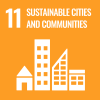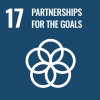Path to Resilience: IOM and VCCI-HCM Release Report on Navigating Post-Pandemic Recovery for Internal Migrant Workers
Ho Chi Minh City, Viet Nam, 23 October 2023 - Increasing affordable rental housing that meets the minimum standard, extending social protection to cover all workers, and supporting skills development are identified by migrant workers and their employers as the priority needs for the immediate and long-term improvement of the Vietnamese workforce, enhancing its sustainability and productivity in the context of post-COVID and digital transformation.
These are some of the main recommendations of the report titled "Impacts of COVID-19 on Internal Migrant Workers in Southern Vietnam and the Roles of Relevant Stakeholders," written by the Vietnam Chamber of Commerce and Industry Ho Chi Minh City Branch (VCCI-HCM) with technical support from the International Organization for Migration (IOM) in Viet Nam. This collaborative effort aims to shed light on the challenges faced by internal migrant workers in apparel, footwear, and electronics industry in Southern Viet Nam, and to provide evidence-based recommendations to enhance their working and living conditions for a resilient post-pandemic recovery.
Internal migrant workers are playing a pivotal role in Viet Nam's economic recovery following the COVID-19 pandemic, particularly in labour-intensive sectors such as apparel, footwear, and electronics. However, it is essential to remember that they were among the hardest hit by the pandemic, with approximately 2.2 million workers from Southern Viet Nam having to return to their hometowns due to job suspensions, retrenchment, and reduced salaries. In 2022, IOM and VCCI-HCM conducted surveys involving 1,200 internal migrant workers and 41 enterprises from the apparel, footwear, and electronics sectors, aimed at understanding the impact of the COVID-19 pandemic on internal migrant workers and businesses alike.
As Viet Nam shifted back to patterns resembling the pre-COVID-19 era, and the demand for internal migrant workers continues to grow to meet the needs of the country's economic zones, many of these workers still face challenging circumstances. These challenges include inadequate income to cover essential living expenses, such as rental housing and children's education in urban areas, disparities between workers' perceived needs and the provisions of social insurance schemes and employment benefits, insufficient workplace protection and working conditions, limited access to support services, and the imminent threat of job displacement due to automation and technology.
"The pandemic exposed the gaps in the working and living conditions of internal migrant workers, highlighting how quickly a sudden shock can push them into vulnerable positions. Some of these vulnerabilities are linked to their migrant status, as they often have to live far from their support networks back home, in expensive urban areas with limited access to resources, including housing," said Park Mihyung, Chief of Mission at IOM Vietnam.
"Other priority needs identified by both workers and employers, such as opportunities for skills development, address longer-term needs to improve the workers’ security. This demonstrates that frontline workers and employers, who have been driving Vietnam's rapid economic development in recent decades, are experiencing the ongoing transition. It underscores the importance of not only addressing immediate needs to improve the current working conditions of workers but also addressing long-term needs to adequately prepare them for the shift from labour-intensive industries to a more high-tech, green economy. These findings are critical for all stakeholders, including the government, businesses, and vocational and educational institutions.”
Bui Thi Ninh, Director of the Bureau for Employers’ Activities, VCCI-HCM, stated, "As Viet Nam strives to rebuild and strengthen its industries post-pandemic, State agencies and enterprises should act toward the creation of an environment that fosters better working conditions, enhanced social support, and improved career prospects for internal migrant workers. This report serves as a roadmap for collective actions towards a more promising future."
The report also extends recommendations to State agencies, urging them to define minimum standards for rental housing and invest in workers' welfare and skill development. For enterprises, fair and decent employment for all workers, workplace dialogue to better understand worker expectations, and investments in skill development for workers are recommended avenues for action. IOM Viet Nam continues to work with relevant government agencies to improve digital skill development for migrant workers, while also advocating for ethical recruitment practices among companies in Viet Nam.

IOM and VCCI announced the findings of the report at the hybrid meeting with Businesses to Discuss Decent Living Conditions and Social Protection for Vietnamese Internal Migrant Workers
The full report can be downloaded here.
For more information of the Report, please contact Ms. Nguyen Nhu Tam (nhnguyen@iom.int). For media inquiries, please contact Ms. Nguyen Thi Hong Yen (thihnguyen@iom.int) or Ms. Nguyen Ngoc Tram (ngocnguyen@iom.int).
























